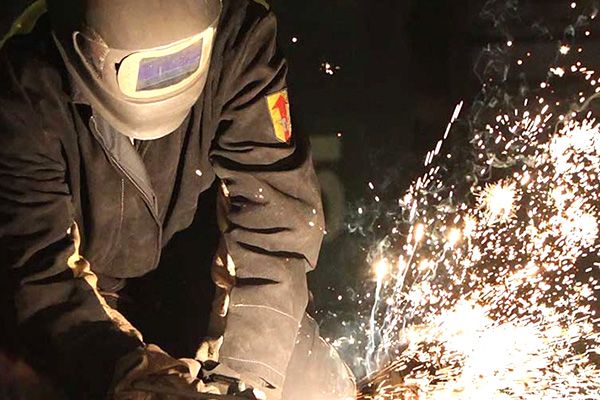No matter what career path you plan to pursue, NPC offers a wide range of science classes to choose from. We offer courses in biology, microbiology, human anatomy, human genetics, chemistry, physics, geology and paleontology (dinosaurs), many of which will transfer to Arizona's three state universities.
- Take the same general education classes that you'd take in your first two years at a university.
- Save thousands of dollars in just tuition cost alone.
- NPC instructors will give you more personalized attention and are committed to your success.
- Graduate with no debt!
The Associate of Science (AS) degree meets all the general education requirements of the Arizona General Education Curriculum (AGEC). This means that general education courses completed at NPC transfer as a block, without loss of credit to Arizona State University (ASU), University of Arizona (UofA) and Northern Arizona University (NAU). Several out-of-state colleges also accept these general education credits.
- Find out more at the AZtransfer website.
- For more information about this program, please contact an NPC Academic Advisor. Also see the current NPC College Catalog and class schedule.
Labs and Classrooms
Most of the classes needed to complete the Associate of Science degree are offered at all nine NPC locations through distance technology classrooms. However, biology, chemistry and physics courses and labs may be limited to the Holbrook, Show Low and Winslow campuses. Speak to an NPC academic advisor for details. Transportation assistance scholarships are available for students at remote centers needing to travel for hands-on lab classes.
Work Environment
Chemical technicians with an associate degree use special instruments and techniques to help chemists and chemical engineers who have more advanced degrees do research, develop, produce and test chemical products and processes. Work can take place in laboratories, where they conduct experiments in manufacturing facilities, such as chemical or pharmaceutical manufacturing plants, where they monitor and perfect production processes or in office buildings.
Biological technicians who have at least a bachelor's degree help biological and medical scientists conduct laboratory tests and experiments and typically work in laboratories.
Geological technicians with an associate's degree provide support to geoscientists and engineers with more advanced degrees in exploring and extracting natural resources, such as minerals, oil and natural gas. Geoscientists also study the physical aspects of the Earth, such as its composition, structure and processes, to learn about its past, present and future. All work in offices, laboratories and sometimes outdoors.
Job Outlook
Employment of chemical technicians is projected to grow 2 percent and the employment of chemists is projected to grow 3 percent through 2025.
Employment of biological technicians is projected to grow 5 percent through 2025.
Employment of geological technicians is projected to grow 12 percent and geoscientists is projected to grow 10 percent through 2025.
Salary
The U.S. Bureau of Labor Statistics lists the mean annual wage in Arizona for: chemical techniciansSOC 19-4031 as $61,040, chemistsSOC 19-2031 as $71,810, biological techniciansSOC 19-4021 as $41,180 and geological and hydrologic techniciansSOC 19-4045 as $43,070 and geoscientistsSOC 19-2042 as $86,950. April 2023.
Potential Job Titles
Biological technician, biologist, chemical technician, chemist, geological technician, geologist, geoscientist.
LEARN WHAT YOU CAN DO WITH A SCIENCE MAJOR!
LEARN WHAT YOU CAN DO WITH AN ENGINEERING/MATH/COMPUTER MAJOR!
Locations
Contact Information
2251 E Navajo Blvd.
Holbrook,
AZ 86025
Northland Pioneer College
Northland Pioneer College
CONTACT AN NPC ADVISOR!
Receive in-person or virtual Academic Advising, register for classes, learn about how you can pay for college, and get the tools you need to become a successful student.














